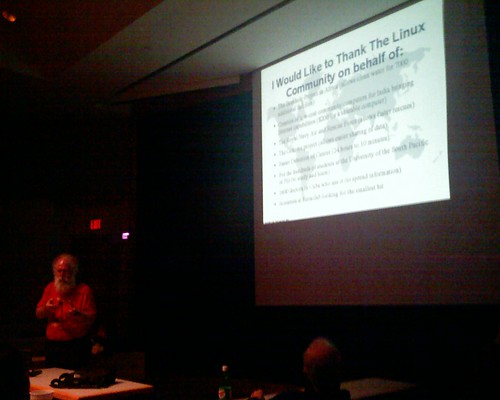Bringing dollars to viral video
Saturday, June 24th, 2006Steven Starr of Revver gave a demo of their “super distribution” model for compensating creators of internet video. By taking advantage of Quicktime HTTP hooks, Revver dynamically serves a single-frame advertisement to the conclusion of a video each time it is played. Apparently, this has resulted in over 20,000$US for the makers of the Mentos/ Diet Coke performance.
Questions linger. How will they verify authorship? How scalable is a human-review model? Starr expressed interest in moving to a sampling, permissive license in the future and alluded to a downstream revenue sharing schema. How would this look and how could it be administered? Is this business model and software patented? Assuming Revver is successful, are we comfortable with a single organization managing the advertising money for all of the web’s viral video? If I transfer videos to my non-networked device, does payment end?
The strongest aspect of the Revver model is its openness. It works almost like piping in the unix commandline interface. Revver can compensate video makers in many different viewing environments. (Democracy, MySpace, Quicktime via email attachment, downloaded from a torrent swarm…)
For now, there is no Linux software. All of their software development has been open except for the QT hook – “that’s the business side” – why can’t the business side be open as well?
